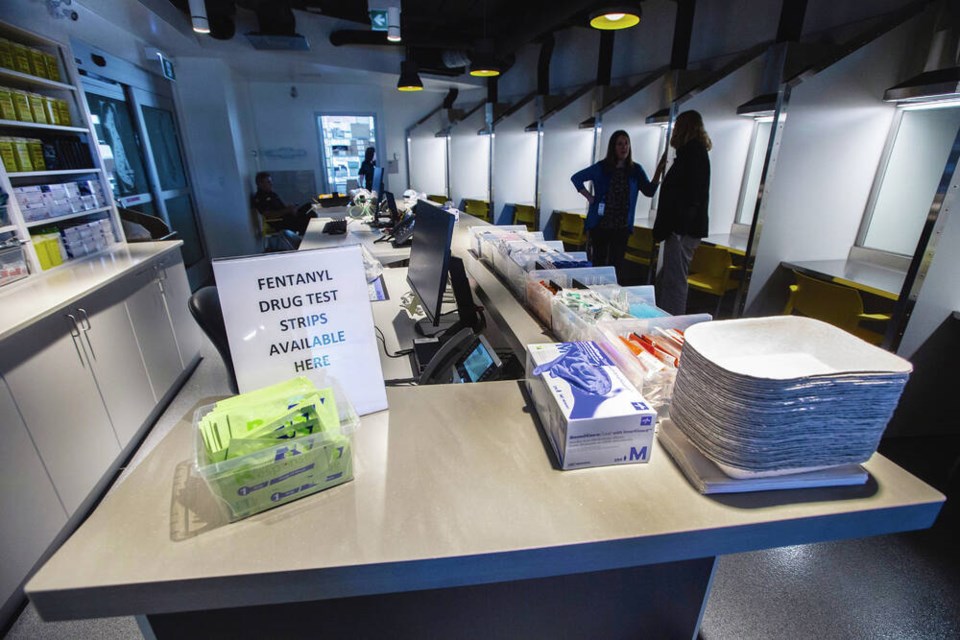A Nanaimo community services agency is eager to see a planned overdose-prevention site set up to serve the growing number of people choosing to inhale toxic illicit drugs rather than inject them.
The Nanaimo and Area Network of Drug Users (NANDU) is among groups that responded to an Island Health request for proposals in January to run an overdose-prevention service for those who inhale as well as those who inject, NANDU administrator Heather McDonald said Friday.
There are a number of reasons people choose to smoke drugs rather than inject them, including wanting to avoid an open wound from an injection, McDonald said.
Nanaimo’s existing supervised consumption site at 437 Wesley St. currently witnesses injections only.
In 2016, the percentage of deaths linked to illicit drugs through injection in sa国际传媒 was 39 per cent. By 2020, that had dropped to 20 per cent.
But in the same period, deaths from toxic drugs consumed by smoking increased to 56 per cent from 31 per cent, a sa国际传媒 Coroners Service report said.
Some deaths show multiple methods of consumption.
Numbers of deaths from illicit drugs remain at a crisis level province-wide. Island Health sent out an alert on May 10 warning that overdoses were increasing in Nanaimo.
Between January and the end of March this year, a total of 12 deaths in Nanaimo are believed to be related to opioids and other illicit drugs, according to the sa国际传媒 Coroners Service.
Last year, 49 people in that city died from illicit drugs.
NANDU, based at 265 Nicol St., doesn’t currently operate a supervised consumption site, but distributes harm-reduction supplies, such as clean products for people planning to take illicit drugs, and 0ffers supports, including driving people to and from hospitals, referring them to services, helping to keep families connected and monitoring people if needed, McDonald said.
Last Wednesday, three individuals arrived after consuming some kind of substance and the NANDU group watched over them for about six hours, she said.
McDonald points to the sa国际传媒 Centre for Disease Control’s overdose prevention service protocol, which is intended to provide guidance to health and social services staff during the opioid overdose and COVID pandemic. It says they may be asked to observe substance use and respond to overdoses outside of designated supervised consumption services or overdose prevention services.
No announcement has been made about the future operator of the upcoming supervised overdose prevention service at a new larger location.
The organization chosen to operate the new site will be expected to provide health and other services, such as overdose prevention, harm reduction, peer supports and witnessed consumption for inhalation and injection, said Island Health.
Applicants need a strategy for referring people to treatment services and social supports when clients are ready.
The successful proponent will carry out community engagement and mitigation to deal with any concerns around the site.
Island Health already funds seven overdose-prevention sites on Vancouver Island.
• To comment on this article, write a letter to the editor: [email protected]



